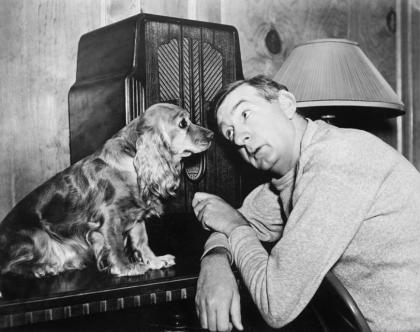Articles: The Building Blocks of the English Language
An article is a special type of adjective that gives you information about the nouns they describe. Articles in English often cause difficulty for people who are trying to learn the language, since some languages use them much more frequently than English, while others don’t use them at all.
Types of articles
There are two main types of articles in English:
- Definite article: if you’re familiar with the word “definite,” you know it means “sure” or “clearly defined.” So, the definite article is for things you are sure about; you know which specific thing you’re talking about.
- Indefinite article: the indefinite article, on the other hand, doesn’t refer to a specific object, or else you’re not yet sure which specific one you are talking about.

What is the definite article in English?
The definite article indicates a specific person or object, or else in some cases refers to all objects of a particular type. The definite article would be used in the following cases:
When you need to differentiate one of something from other similar things:
- The door to the attic is locked. Which door are we talking about? The specific door to the attic.
- My friend lives in the house to the right of mine. Which house are we talking about? The specific house to the right of mine.
When you continue to talk about a previously mentioned person or object:
- I saw a man standing by the window. The man was very old. In the first sentence, you’re not sure which man is being talked about, so the indefinite article is necessary. Because the writer wants to talk about the same specific man a second time, he switches to the definite article.
When it is clear which person or thing is being talked about from the situation or context:
- Please close the window. It’s clear the speaker would like you to close whichever window is open.
- He’s the tallest man in the whole town. Although you might not know specifically which town is being referred to, it’s clear that it’s the specific one the man lives in, so you need the definite.
When using adjectives to describe all the people or things of a particular type:
A definite article before an adjective sometimes allows you to talk about all people or things of that description.
- Youth is wasted on the young. This common expression uses “the young” to mean “young people.”

What are indefinite articles?
Indefinite articles, unlike definite articles, are used to refer to some unspecified person or object. In English, the indefinite article is “a” when the next word begins with a consonant sound and “an” when the words begins with a vowel sound.
Note that words like unique might start with a vowel but have a consonant sound (you’d say a unique answer), whereas words like hour start with a vowel sound even if the first letter is a consonant (you’d say an hour).
Use the indefinite article when you have not specified which of a particular thing you are mentioning.
- I’ve never been in a foreign country. In this sentence, you are not talking about a particular country.
- Would you like a cup of tea? The sentence is asking whether the other person would like some tea; the specific cup that it comes in is not important.
- My mother is a very kind person. Saying “My mother is the very kind person” would suggest that your mother is the only very kind person in the world. Although she’s probably very nice, she’s most likely not the only one, so you need the indefinite article.

When don’t I need an article?
In some specific cases in English, no article is necessary.
When giving general descriptions of a type of thing:
The thing always needs to be plural.
- I don’t like apples.
- Pets are a lot of fun but they also involve a lot of responsibility.
When you’re talking about uncountable objects:
In general, uncountable objects don’t take an article; these are nouns that, as the name suggests, you can’t count. Learn more about uncountable objects here.
- Bread is delicious.
- Drink water as often as possible.
However, when you are referring to a particular amount of an uncountable object, you’ll still use a definite article.
- The milk in the fridge has gone bad. Here, you’re talking about the specific amount of milk that is in the fridge.
- Pass the salt, please. Here, you’re talking about the specific amount of salt that is on the table in the shaker.
When ordering at a restaurant, you might also use an indefinite article to refer to the amount you are going to order.
- I’ll just have a coffee, please.
When you’re talking about abstract concepts and ideas:
In some languages, abstract concepts require definite articles, but in English they generally don’t use them.
- Art is difficult to define.
- Treat your elders with respect.
When you’re using specific idiomatic expressions:
Some specific expressions in English do not use an article where you might expect one, particularly in prepositional phrases that describe a more complicated state of being, rather than simply a physical location.
- At school (note that “at school” refers to the state of being in an educational institution to learn; “at the school” would mean you are physically near a specific school building; “at a school” would mean you are physically near a school building but you don’t know which one!)
- At work
- In bed
- At home
- By mistake

Try it out
These sentences have blanks before them certain nouns. Should they have “a”, “an”, “the”, or no article?
(1). I logged on to my computer and saw that I received _____ email from _____ woman I didn’t know. (2) _____ email said that she had read my résumé, which I had sent to her company, and she wanted to give me _____ phone interview. (3) I prefer _____ phone interviews because then I can stay in my pajamas, close _____ door, and do _____ interview comfortably in my bedroom.
How’d you do?
- I logged on to my computer and saw that I received an email from a woman I didn’t know.
- The email said that she had read my résumé, which I had sent to her company, and she wanted to give me a phone interview.
- I prefer * phone interviews because then I can stay in my pajamas, close the door, and do the interview comfortably in my bedroom.
*no article is needed for the first blank of the third sentence.
Articles are tricky to master, but get them right and you’ll sound just like a native speaker!

